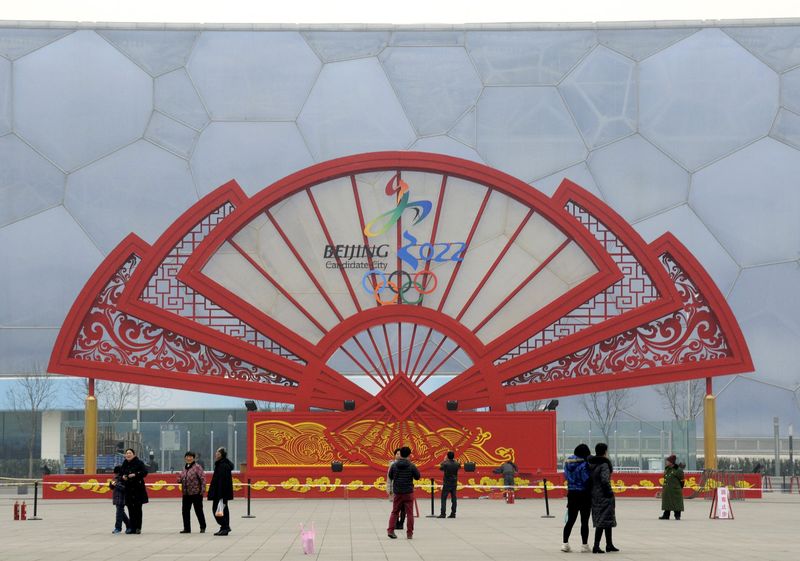By Karolos Grohmann
BERLIN (Reuters) - Global metropolis Beijing will go head-to-head with the little-known Kazakh city of Almaty for the right to host the 2022 winter Olympics when the International Olympic Committee elects the winner at its session in Malaysia next week.
Beijing, which hosted the 2008 summer Games, is looking to become the first city to be awarded both summer and winter editions of the world's biggest multi-sports event.
Victory for Beijing would also mean that Asia would host three consecutive Olympics after the 2018 winter Games in Pyeongchang in South Korea and Tokyo's 2020 summer Olympics.
A clear frontrunner in the race with even Almaty consultants admitting their bid is the underdog, Beijing banks on its 2008 Olympic experience to convince the 100-plus IOC members in Kuala Lumpur on July 31.
"We are competing against a very formidable Beijing. To be honest, we're considered a long shot. An underdog," Almaty consultant Terrence Burns wrote in his blog this week.
State-of-the-art venues, including the iconic Bird's Nest stadium, will be used, easing any concerns about preparedness, with China's economic clout further boosting its chances.
Yet not all is working in Beijing's favour, including the fact that sliding and skiing events are to be staged in two mountain sites 74 and 180 kilometres away respectively.
China will also be counting on snow-making machines as it cannot guarantee sufficient snow.
Almaty narrowed the gap in June, scoring points during a presentation to the IOC with their "keeping it real" slogan and images of the towering Thien Shan mountains surrounding the city, which was a former Soviet winter sports hub, and plenty of fresh natural snow available.
WINTER FEEL
It is that winter sports atmosphere and the compactness of the bid with everything in a 35-km radius that Almaty has played up, with Beijing offering technical excellence but lacking the feel of a traditional snow-covered winter sports destination.
Yet Kazakhstan's strong dependence on oil sales for revenues is providing the organisation with some financial risk depending on international prices, the IOC's evaluation report noted in June.
"You could see a clear focus in both bids on sustainability and affordability," IOC President Thomas Bach said last month. "Both cities had different approaches and are starting from different points."
"Almaty plans to develop a traditional winter sports centre, and leave the lasting legacy of transforming the region. Beijing showed excellent use of the 2008 legacy, and also plans to create a sporting legacy by giving more than 300 million Chinese access to winter sports."
Beijing has been hit by several suspected corruption cases with a deputy sports minister and Zhou Benshun, currently the top official in the northern province of Hebei, which is planned to host some sports in the town of Zhangjiakou, under investigation.
Both attended Beijing 2022 bid committee meetings in the past.
AGENDA 2020
With the bidding process hit by four withdrawals, including Oslo and Stockholm, over financial concerns or lack of domestic support, the IOC voted in reforms under its Agenda 2020 last year to make bidding more attractive while also reducing the Games costs to reignite interest.
Almaty and Beijing say they have fully updated their plans to fit into Agenda 2020 by making their bid more sustainable and efficient, using existing venues and keeping costs as low as possible.
Neither, however, seems able to put an end to criticism of their governments' human rights records with some rights groups urging the IOC not to award the Games to Beijing after the 2008 Games failed, as they claim, to mark any improvement in human rights in China.
Kazakhstan has been accused of media restrictions and doing little to stop violence and discrimination against gay, lesbian, bisexual and transgender people.

"Whether China or Kazakhstan wins the honour ... the IOC will face an extreme test of its new commitment to improve human rights protections," Minky Worden, Human Rights Watch director, said this month.